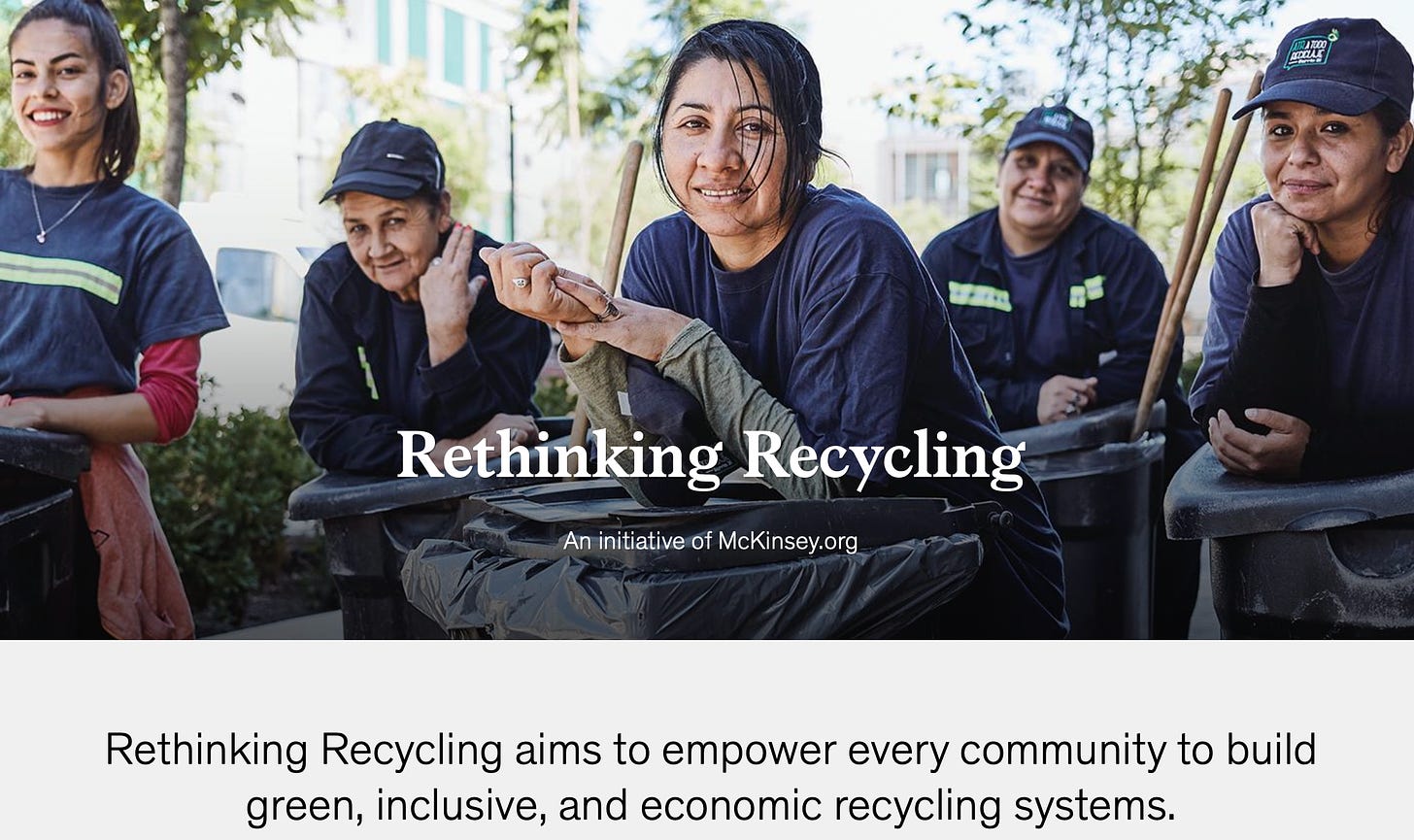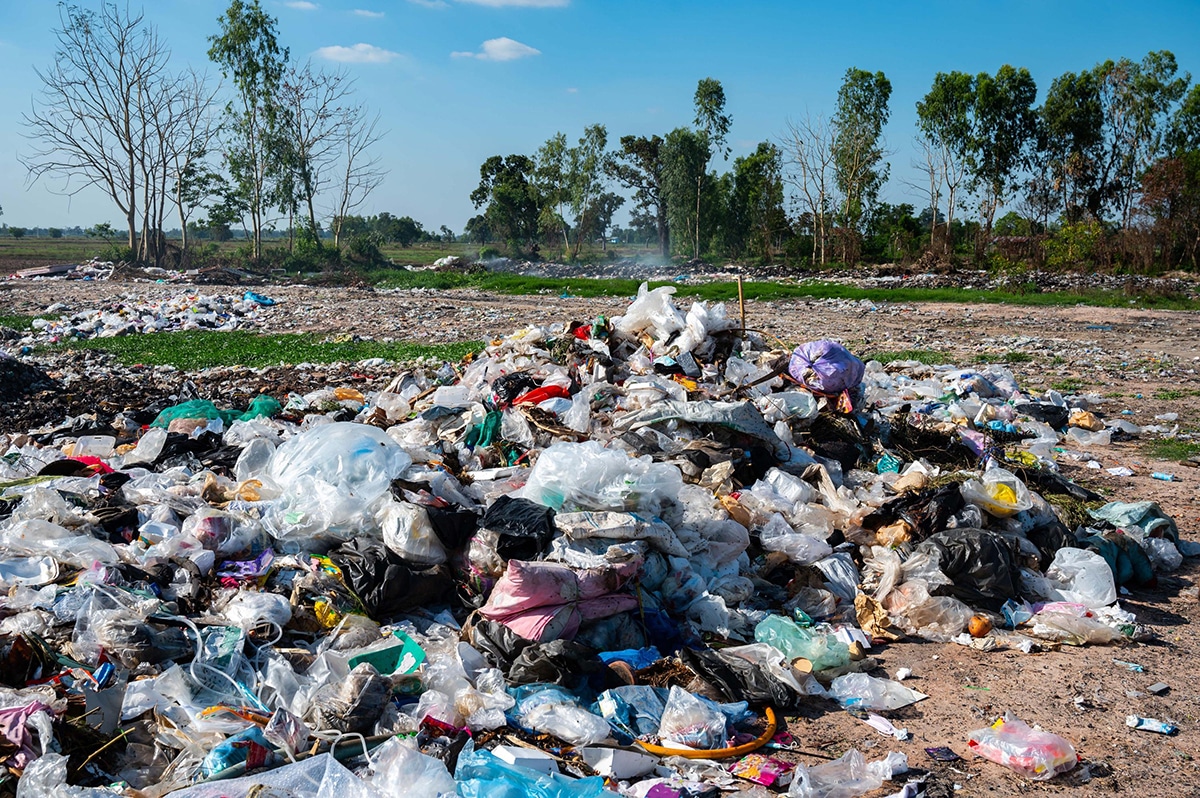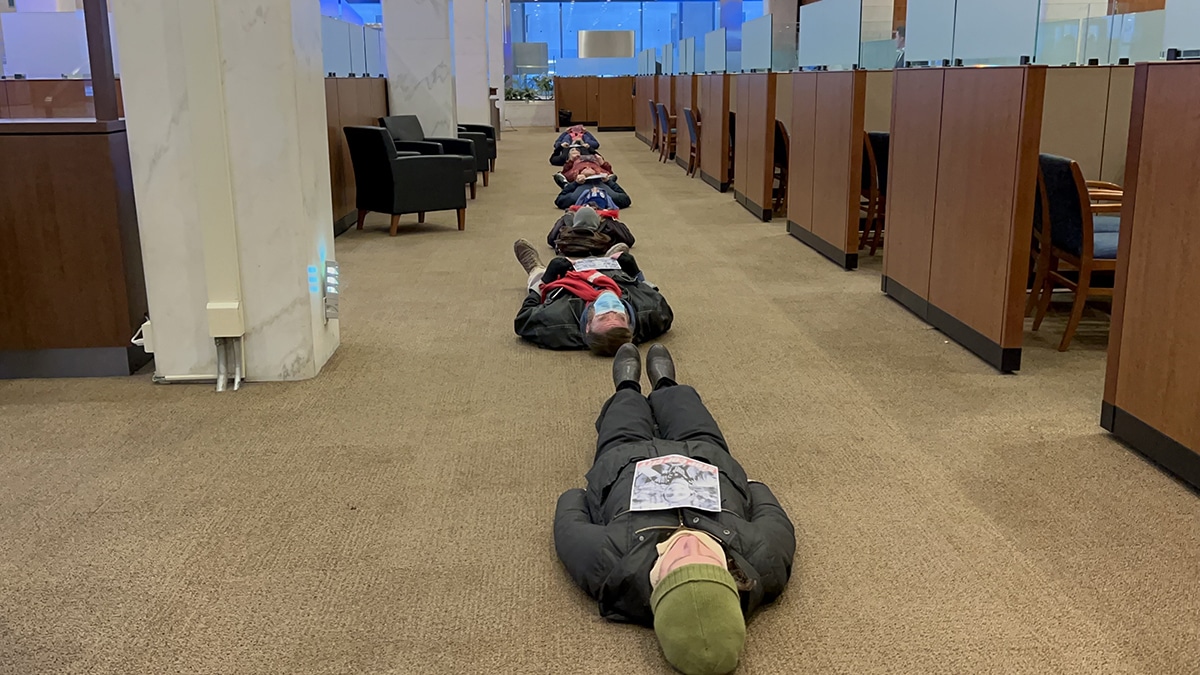

McKinsey, other misinformers, sponsoring Climate Week NYC
by ExxonKnews | Sep 13, 2023
Emily Sanders is the Center for Climate Integrity’s editorial lead. Catch up with her on Twitter here.
This is Part 2 of a two-part ExxonKnews series taking a closer look at the companies sponsoring Climate Week NYC.
Yesterday, we explored the toxic legacy of Saint-Gobain, headline sponsor at this year’s Climate Week NYC.
Another confounding choice for a Climate Week sponsor — and the event’s opening ceremony partner — is McKinsey Sustainability, an arm of the global consulting firm McKinsey & Company, which notoriously works for some of the world’s biggest climate polluters.
In June, McKinsey — along with major fossil fuel companies — was sued by Multnomah County, Oregon, whose lawsuit argues that the firm helped deceive the public about climate change for decades.
McKinsey made massive profits advising at least 43 of the 100 biggest corporate polluters over the past half-century — including Exxon, BP, Chevron, and Saudi Aramco — helping them to “sow ‘scientific’ and public doubt in furtherance of their ceaseless, ravenous quest for more wealth,” the lawsuit argues.
“McKinsey’s claims of commitment to environmental protectionism stand in stark contrast to the millions of dollars it has earned assisting its fossil fuel and mining company clients in promoting themes to deny the existence and/or gravity of [anthropogenic climate change],” reads the complaint.
On the company’s website, McKinsey parrots deceptive industry talking points and denies the urgency of moving off fossil fuels. “According to McKinsey’s Global Energy Perspective 2022, fossil fuels such as oil and natural gas will continue to make up a significant share of the energy mix by 2050, partly because of how they combine affordability and security of supply,” reads an article from February. (Renewable sources of energy are now more affordable and secure than fossil fuels.)
Climate Group, host of Climate Week NYC, interviews an executive at McKinsey.
The firm is also aiding fossil fuel and chemical companies in misleading the public about plastic recycling. As recently as 2021, McKinsey received funding from the Alliance to End Plastic Waste, a front group funded by the American Chemistry Council and helmed by executives at major oil and gas companies, for its “Rethinking Recycling” initiative, a project that boasts investments in recycling infrastructure in the Global South — and tacitly shifts the blame for plastic pollution onto a lack of recycling there. (Oil and gas companies knew recycling wasn’t effective, but spent decades promoting it as a solution to plastic waste anyway. Today, these same companies are flooding the Global South with plastic garbage made from fossil fuels.)

A screenshot from McKinsey.org’s web page on its “Rethinking Recycling” initiative.
McKinsey’s work for nefarious, high-paying clients under the guise of benefitting society doesn’t end with Big Oil. Just last week, a former employee and whistleblower, who spent his time at McKinsey providing consulting services for the Rikers Island jail complex and U.S. Immigration and Customs Enforcement (ICE), published a damning expose in The Nation, writing that he “eventually understood that not only does McKinsey fail to make the world better — it often colludes with those who make the world worse.”
So why is such a company not only welcomed at Climate Week, but allowed to brand the event with its name and logo? A McKinsey executive will sit on a panel for the first agenda item at the opening ceremony, whose description says that “Climate action is not moving fast enough across the globe and those in positions of power have a responsibility to act without delay,” and asks, “What is the stark reality of the challenge we face, where must investment be channeled, and which vested interests need to be held accountable?”
McKinsey did not respond to questions from ExxonKnews.
Other companies listed as sponsors include PepsiCo, a “gold partner,” Nestle, and Unilever, “silver partners” — all of whom were among the top five worst plastic polluters last year, according to Break Free From Plastic’s 2022 annual audit. The three companies are also set to blast past their agreed-upon plastic packaging reduction targets by 2025. While promising to reduce their pollution, they’ve persistently lobbied against bills that would lessen plastic waste.
Judith Enck, President of Beyond Plastics and a former EPA Regional Administrator, pointed out that the U.S. plastics industry is on track to contribute more greenhouse gas emissions than coal-fired power plants in this country by 2030. While making the climate crisis significantly worse, she contended, companies that sell plastics are using Climate Week to “deceive the public and policymakers into thinking that they’re actually taking action” to make it better.
“This is a rogue gallery of plastic polluters, and they should not be co-sponsoring an event like this — in fact, we should be at their corporate headquarters protesting how they make the climate crisis worse,” Enck said. “It’s the equivalent of having the tobacco industry co-sponsor a conference on respiratory disease.”
Another recurring Climate Week sponsor is National Grid, a gas utility that has in recent years pushed for so-called “renewable natural gas” and hydrogen projects as proof of its commitment to climate action. National Grid sits on the steering committee of New Yorkers for Affordable Energy, a front group that campaigns against climate legislation in the state. Two years ago, the company faced a Civil Rights Act complaint for its attempts to build a major fracked gas pipeline through New York’s densely populated communities of color.
National Grid is a “gold partner” and National Grid Ventures (NGV) is a “silver partner” at Climate Week this year. An NGV blog on the Climate Week website, entitled “Pursuing Environmental Justice in the Northeast,” claims that “As a clean energy company, we must build the clean energy infrastructure that will slow climate change and make sure people do not have to lose their communities to a climate disaster.”
Many of the events during Climate Week will yet again be closed-door, private sessions between company executives, where frontline communities are shut out. Last year, the CEO of Climate Group, the nonprofit organizing the event, told TIME that “It’s not that we’re trying to exclude those people… it’s being pragmatic about what makes change happen.”
As Alejandro de la Garza wrote in that piece, “The issue, though, is that there are few forums where people outside circles of money and power can get a say over what powerful companies are doing in the name of sustainability.” Indeed, fossil fuel companies are currently scrambling to win IRA funds and tax credits for carbon capture and other so-called “climate solutions” to be sited in communities already plagued by fossil fuel pollution, many of whom are adamantly opposed to additional projects that will prolong the lifespan of oil and gas.
For Cassidy DiPaola, an organizer of the March to End Fossil Fuels, which is taking place in New York City on the first day of Climate Week, deeming these companies climate partners gives them another opportunity to “deceive consumers and dodge accountability” — and is an unsettling reminder of a growing trend.
“The climate movement is no stranger to dirty interests weaseling their way into our work under the guise of ‘solidarity’,” DiPaola wrote to ExxonKnews. “We’ve seen it at international events like COP27, where the influence of fossil fuel lobbyists was greater than countries at the frontline of the climate crisis, and we’re seeing it now as Climate Week is set to take off in New York City.”
Climate Group did not respond to questions from ExxonKnews.




0 Comments